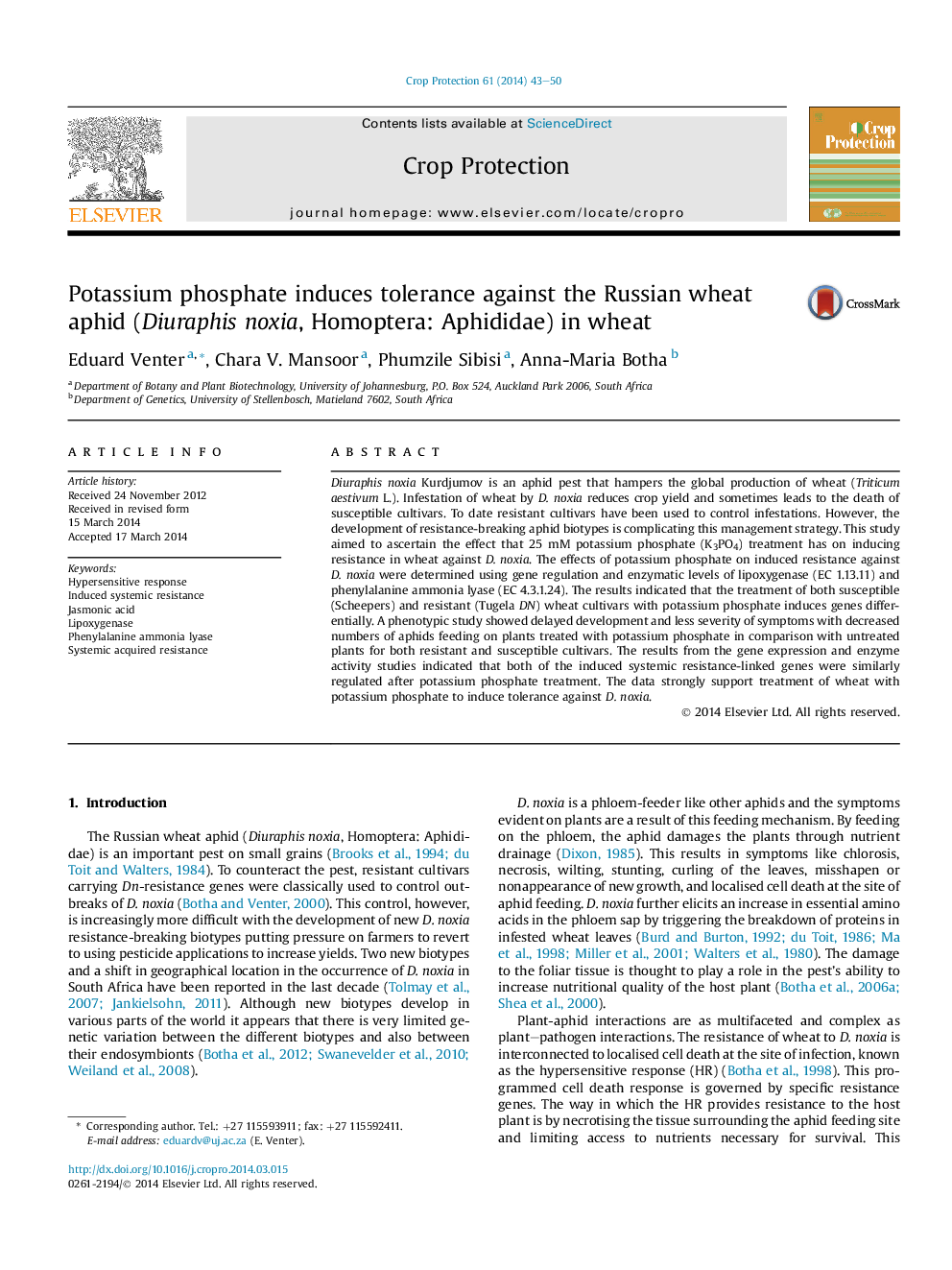| کد مقاله | کد نشریه | سال انتشار | مقاله انگلیسی | نسخه تمام متن |
|---|---|---|---|---|
| 4505906 | 1624326 | 2014 | 8 صفحه PDF | دانلود رایگان |

• Potassium phosphate application primes wheat defences against Diuraphis noxia.
• Treatment regulates lipoxygenase and phenylalanine ammonia lyase activity.
• Treatment results in complete removal of aphids on both cultivars.
• Susceptible wheat display high levels of tolerance against D. noxia after treatment.
Diuraphis noxia Kurdjumov is an aphid pest that hampers the global production of wheat (Triticum aestivum L.). Infestation of wheat by D. noxia reduces crop yield and sometimes leads to the death of susceptible cultivars. To date resistant cultivars have been used to control infestations. However, the development of resistance-breaking aphid biotypes is complicating this management strategy. This study aimed to ascertain the effect that 25 mM potassium phosphate (K3PO4) treatment has on inducing resistance in wheat against D. noxia. The effects of potassium phosphate on induced resistance against D. noxia were determined using gene regulation and enzymatic levels of lipoxygenase (EC 1.13.11) and phenylalanine ammonia lyase (EC 4.3.1.24). The results indicated that the treatment of both susceptible (Scheepers) and resistant (Tugela DN) wheat cultivars with potassium phosphate induces genes differentially. A phenotypic study showed delayed development and less severity of symptoms with decreased numbers of aphids feeding on plants treated with potassium phosphate in comparison with untreated plants for both resistant and susceptible cultivars. The results from the gene expression and enzyme activity studies indicated that both of the induced systemic resistance-linked genes were similarly regulated after potassium phosphate treatment. The data strongly support treatment of wheat with potassium phosphate to induce tolerance against D. noxia.
Journal: Crop Protection - Volume 61, July 2014, Pages 43–50